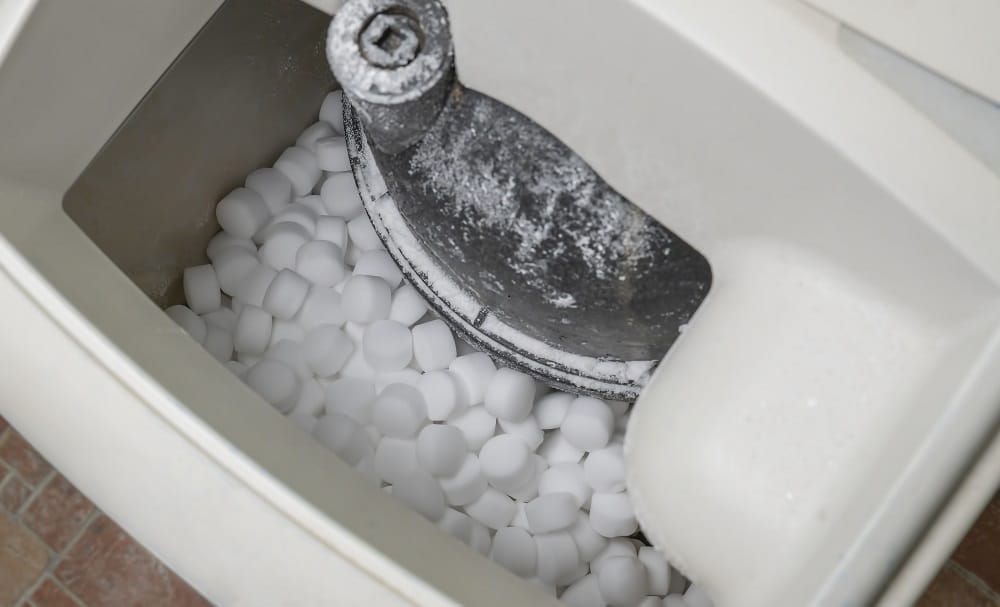More than 8 out of 10 Americans have homes with hard water. Water rich in dissolved minerals such as magnesium carbonate and calcium can cause all sorts of problems. From fading laundry to spotty dishes, hard water can make it extremely difficult to clean tubs and showers, not to mention yourself. Even worse, perhaps, the buildup of minerals can wreak havoc on your home’s pipes, resulting in a drop in water pressure and clogging up appliances and faucets throughout your home.
The most effective solution to all of these problems is to put a water softener in your home, but a lot of homeowners don’t feel comfortable with them because of the myths that have been built up over time about how they operate. Here are some misconceptions that are worth debunking.
Water Softeners Add Salt to Your Water
Water softeners are able to remove harmful minerals such as calcium and magnesium by using an ion exchange process that requires the introduction of sodium ions. While sodium is often confused with salt, it is merely a part of the salt molecule, and is completely flavorless.
What If There’s Too Much Sodium?
No one wants to have an excess of sodium in their diet. While sodium is necessary to soften a home’s water, the amount of sodium required for even the hardest types of water is far too little to have any deleterious health effects. Time and again, when household water that’s been treated with water softeners is tested by a private water testing lab, the amount of sodium present is measured at levels too small to be considered harmful.
Water Softeners Are Also Purifiers
If you’re expecting too much out of your water softener, you’re likely to be disappointed. While they’re excellent at removing minerals from hard water, they’re not the same as home filtration systems that are designed to purify drinking water.
Don’t We Need Calcium in Our Diets?
The type of minerals that exist in hard water are inorganic minerals that are not easily absorbed into the blood stream. When calcium or magnesium is taken in food or supplements, they’re very beneficial. The same cannot be said with the inorganic versions of the same minerals that appear in water.

Soft Water Can Make You Feel Slimy
Some people notice their skin feel slick or “slimy” after showering with soft water. They may assume that it’s a sign of residue being left by the water, but it’s actually the lack of residue that they’re noticing. Since soap doesn’t react as well to hard water, it tends to stick to your skin after showering. The “sliminess” you might notice after a soft water shower is actually how your skin is supposed to feel.
Water Softeners Are Wasteful
During the regeneration process (necessary to recharge the media with sodium ions) water softeners will waste some water. However, due to the fact that cleaning with soft water is so much more efficient, it’s likely you’ll still be using less water in the long run than you would with hard water.
If you want to know just how hard your water is—and whether or not a water softener would help—have your water tested by a private water testing laboratory such as Environmental Testing and Research Laboratories, Inc. Get started by giving them a call today!

